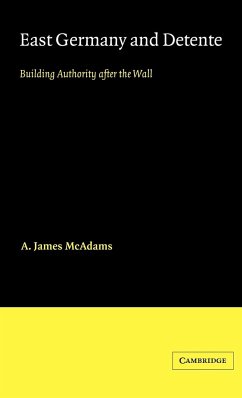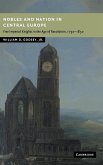The emergence of East Germany as one of Europe's most vocal advocates of East-West détente in the 1980s represents a remarkable political transformation. Prior to the Soviet invasion of Afghanistan, East Germany had been amongst the most intransigent proponents of the Cold War, largely because of the perceived threat to the domestic authority of its own leadership. Renewed exposure has, however, prompted that leadership to regard good relations with the West as integral rather than inimical to its own pursuit of legitimacy. Of interest not only to scholars of communist politics but to all students of East-West affairs, Professor McAdams' study demonstrates both the changing historical significance of the idea of d6tente, and the way in which non-superpower states can take initially adverse circumstances and turn them into instances of opportunity.
Table of contents:
Preface; 1. Introduction; 2. Die mauer: 1961; 3. Building authority: 1962-1966; 4. Cracks in the myth of stability: 1967-1971; 5. Redefining East German priorities: 1972-1978; 6. Looking outward: 1979-1984; 7. Conclusion; Notes; Bibliography; Index.
Hinweis: Dieser Artikel kann nur an eine deutsche Lieferadresse ausgeliefert werden.
Table of contents:
Preface; 1. Introduction; 2. Die mauer: 1961; 3. Building authority: 1962-1966; 4. Cracks in the myth of stability: 1967-1971; 5. Redefining East German priorities: 1972-1978; 6. Looking outward: 1979-1984; 7. Conclusion; Notes; Bibliography; Index.
Hinweis: Dieser Artikel kann nur an eine deutsche Lieferadresse ausgeliefert werden.








